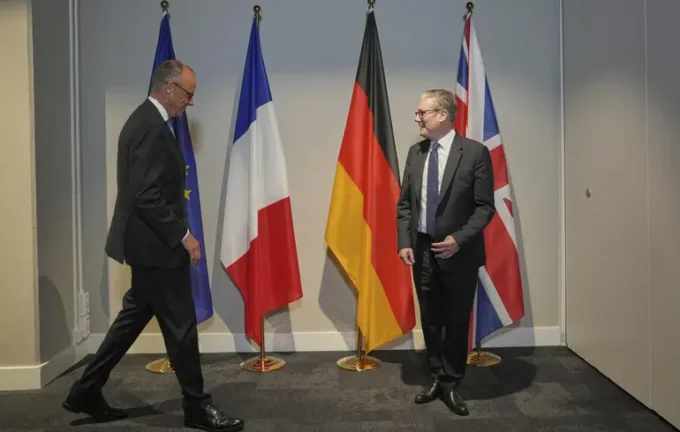International Community Considers Next Steps in Gaza and Political Implications

Following the unexpected declaration by French President Emmanuel Macron to officially recognize a Palestinian state, global leaders are intensely discussing potential responses.
Mounting pressure on the United Kingdom and Germany, notably from their European Union allies, aims to accelerate diplomatic actions concerning the Gaza conflict.
During this critical period, as the humanitarian crisis intensifies — according to UN data, a quarter of the population faces starvation — key international players strive to find ways to halt the bloodshed and deliver vital aid to civilians.
Meanwhile, the governments of London and Berlin are exploring options to mobilize their resources and measures, despite internal political disagreements.
Leaked reports suggest that leaders from the UK, France, and Germany issued a joint statement calling for an immediate ceasefire and fulfilling humanitarian needs.
In this context, the roles of the US and Israel in negotiations have diminished: the US withdrew its delegations, and Israeli forces began active evacuation.
Pressure is also mounting from the opposition: over 200 Australian MPs are urging their government to follow France’s lead by recognizing a Palestinian state.
As some European leaders seek to maintain a balance of interests without taking excessive measures, internal disputes and diplomatic games continue to complicate reactions.
Specifically, German Chancellor Friedrich Merz and his coalition partners have so far refrained from supporting unconditional recognition but are considering revising economic and political strategies towards Israel, including the EU association agreement.
Simultaneously, diplomatic discussions in Brussels revolve around potential sanctions and restrictions against Israel in light of ongoing hostilities.
Despite attempts to limit support for Tel Aviv, some countries remain firm in their positions, while others advocate measures to prevent escalation.
This situation creates tensions within the EU and raises questions about unity in responding to the crisis.
Major players such as Germany, Italy, and Belgium favor a cautious approach, but the possibility of strengthening sanctions against Israel remains, depending on how the situation unfolds in the region.

